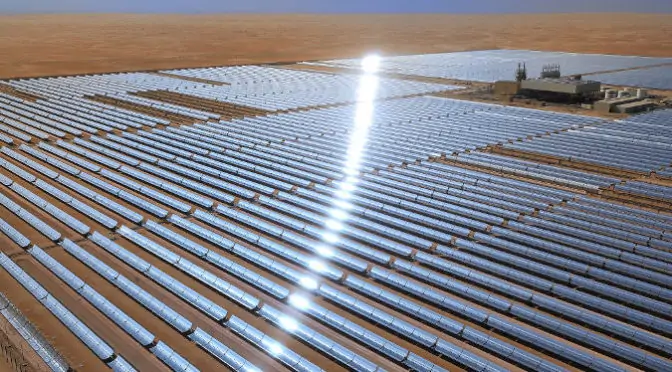Since the Islamic State declared a Khilafah on 29 June 2014, it carried out, worldwide, 6 attacks or series of attacks in 2014, which killed 2 and wounded 12 people, 23 in 2015, which killed 1020 and wounded more than 2171, 36 in 2016, which killed more than 1455 and wounded more than 3505 and so far 3 in 2017, which killed more than 109 and wounded more than 169 people, assuming all attacks are known and referenced as such (Wikipedia “List of terrorist incidents linked to ISIL“). As a whole, we thus faced 68 attacks, during which more than 2586 people lost their lives and more than 5857 were injured. Prospects for the near future look no less grim as reminded …
Search results for: Iraq
Impacts of the Conflict in Ukraine – Geopolitics, Uncertainties and Business (3)
With this article and the next one, we use the instability and conflict in Ukraine and the related impacts on businesses to continue enhancing our understanding of the way businesses and the corporate world could usefully anticipate or foresee geopolitical and political risks and uncertainties.Fifth Year of Advanced Training in Early Warning Systems & Indicators – ESFSI of Tunisia Towards a U.S. Nuclear Renaissance? AI at War (3) – Hyperwar in the Middle east AI at War (2) – Preparing for the US-China War? Niger: a New Severe Threat for the Future of France’s Nuclear Energy? Revisiting Uranium Supply Security (1) The Future of Uranium Demand – China’s Surge We review two major impacts of the war in Ukraine. First we look at the “surprising” …
Continue reading “Impacts of the Conflict in Ukraine – Geopolitics, Uncertainties and Business (3)”
The UAE Grand Strategy for the Future – from Earth to Space
The United Arab Emirates (UAE) is devising a grand strategy to ensure its global security during the 21st century. In 2010, the UAE’s government published the “UAE Vision 2021”, establishing the will “to ensure a sustainable development”. In 2011, the UAE’s political authorities created a national marine environment research centre. In 2014, they created the …
Continue reading “The UAE Grand Strategy for the Future – from Earth to Space”
Fighting the Islamic State’s Terrorism at Home – The Third Way
On 12 and 13 June 2016, two terrorist attacks claimed by the Islamic State (also known as ISIS) reminded the Western population, with immediate impact on the U.K. “Brexit” polls (see below), that the war waged against them and all non-Salafis had not ended. The first attack took place against a gay nightclub in Orlando, U.S., killing 50 and wounding 48 people (e.g. BBC News, 13 June 2016). The second occurred in Magnanville, France (e.g. BBC News, 14 June 2016). There, a jihadi stabbed to death a police commanding officer, who was coming back from work, then killed the police officer’s partner under the eyes of their three and half boy in their home. The attacks generated political reactions showing that the debate has polarised but without truly evolving since the first recent …
Continue reading “Fighting the Islamic State’s Terrorism at Home – The Third Way”
Libyan War Spills Over to Europe, Algeria, and Niger – Sc 2.2 (1) – Scenarios for the Future of Libya
This article is the first of our series focusing on scenarios depicting the range of spillover that could stem from the Libyan war. In our previous article, we concluded the scenarios for international intervention in light of a fragmenting unity government. In this article, we shall focus on scenarios related to conflict spillover in only one direction (towards Europe), and then spillover in two directions (west towards Algeria and south towards Niger). These scenarios are grounded in the premises that the evolution of the civil war leads to spillover. As a result, the war changes from an internal civil war within the bounds of Libyan borders with a measure of external involvement, to a renewed war that encompasses more than …
The United Arab Emirates: the Rise of a Sustainable Industrial Empire?
Modern societies, economies and businesses become increasingly unsustainable because of the convergence of their complex and in-built vulnerabilities with climate change. However, the United Arab Emirates (U.A.E.) has initiated a very interesting strategy: the experimentation with and promotion of sustainability on a national and international scale, in order to support an adapted way of life …
Continue reading “The United Arab Emirates: the Rise of a Sustainable Industrial Empire?”
Tempobs – Balance of Power Formation for Iran and Saudi Arabia
At the latest 2 June 2016 OPEC summit, Saudi Arabia and Iran failed to reach an agreement on oil production level (e.g. Terry Macalister, The Guardian, 2 June 2016). Different needs as well as tensions between the two countries are at stake. Yet, a few analysts have also underscored a slight improvement in the relations between Saudi Arabia and Iran (Liam Halligan, “Opec is very much alive as Saudis learn to tread softly“, 4 June 2016). What should we thus expect? Should we trust that a warming of the relationships is indeed underway, or should we expect a potential stiffening of positions considering the current offensive led by Shia governments in Syria and Iraq (e.g. Alex MacDonald, “Sunni fighters say militias, not army, should liberate Fallujah …
Continue reading “Tempobs – Balance of Power Formation for Iran and Saudi Arabia”
Alberta Mega Wildfire and the United Arab Emirates Security
In April 2016, some important oil-producing Middle Eastern countries, as the United Arab Emirates, Kuwait, and Iran, were present among the representatives of more than 155 countries headed to the U.N. in New York to ratify the international climate accord negotiated during the Paris COP 21 (“UAE vows to make climate deal work”, The National UAE, April 23, 2016). Less than a month later, from North America to Russia, places especially vulnerable to climate change are shaken by immense wildfires. Prominent among these extreme weather events, is the mega wildfire that devastates the region of Fort Mc Murray, in the Alberta state of Canada (Bryan Alary, “Fort Mc Murray blaze among “most extreme” of wild fires says researcher”, Phys.org, May …
Continue reading “Alberta Mega Wildfire and the United Arab Emirates Security”
The Islamic State in Libya – Force, Fighters and Tribes
What is the current state of play for the Islamic State in Libya, and, most importantly, how can it evolve? The question is increasingly relevant considering the rising possibility of an international intervention in Libya against the Islamic State, a complex matter considering notably the questioned domestic legitimacy of the new U.N.-prompted Government of National Authority (GNA) (e.g. APA, “Libya unity gov’t approval postponed indefinitely“, 19 April 2016), despite strong pressure imposed on Libyans to recognise it, such as the U.S. President “Executive Order — Blocking Property And Suspending Entry Into The United States Of Persons Contributing To The Situation In Libya” (White House, 19 April 2016). Is the Islamic State’s threat in Libya hyped and “not a realistic fallback” for a Khilafah, furthermore …
Continue reading “The Islamic State in Libya – Force, Fighters and Tribes”
Israel and the Coming Long Threat – The Planetary Crisis Rules (4)
Israel faces an unexpected and immensely dangerous strategic threat: climate change. This threat is shared with the rest of the world: it is the way climate change keeps getting stronger and how its effects are combining with pre-existing systems of vulnerabilities at country and regional level, the Middle East in the case of Israel (Dahr …
Continue reading “Israel and the Coming Long Threat – The Planetary Crisis Rules (4)”











